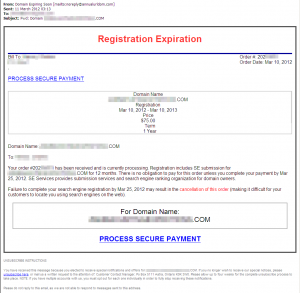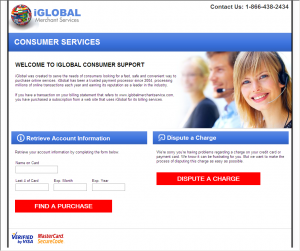We bring your attention to yet another scam aimed at domain registrants. Of course, there are disclaimers in the faded fine print telling you that this is not an invoice, only a solicitation or proposal, but the email is clearly designed to look like an invoice for the renewal of a supposedly expiring domain registration.
As always, please ignore emails sent to the email address that you use in your domain registration(s) that are not from your domain registrar or registry. (If you’re not clear on the difference between a registrar and a registry — and who yours are for your domain[s] — please ask us.) In fact, we suggest using an email address for your domain registration(s) that you do not use for anything else, so that you can identify emails that are sent as a result of “scraping” your email address from the public WHOIS.
Below is one of the examples of the latest scam that we are seeing. Please note, however, that the apparent sending email (in the “from” field) can and does vary.
From: Domain Service <info@better-fit.com>
To: domains@ninernet.com
Subject: spam-slip.com expiration
Date: Mon, 30 Nov 2015 15:53:16 +0800
|
If you have any questions about this or any other suspicious email you have received, please let us know.

